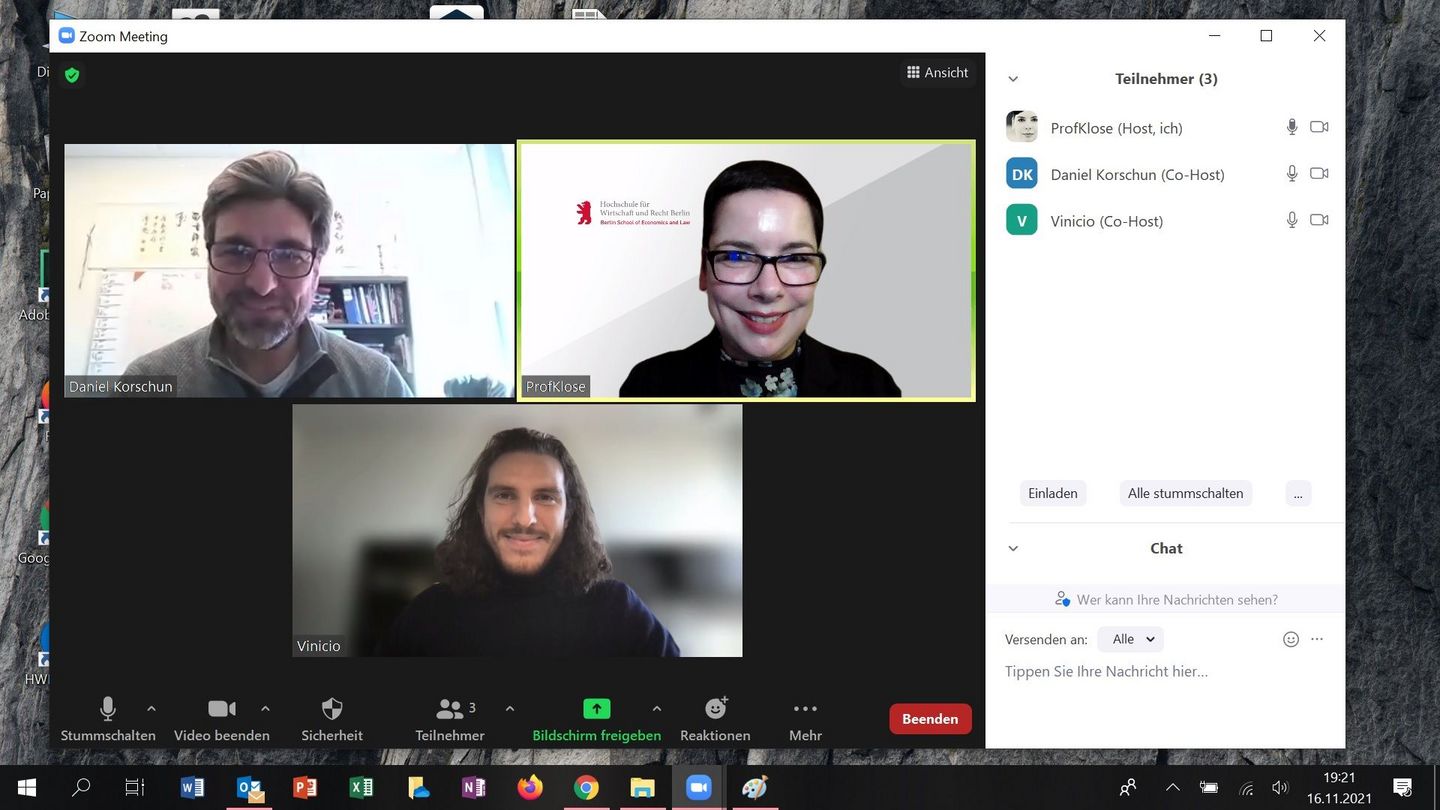Approaches to sustainability in the US and Germany
Around 70 students from the HWR Berlin and Drexel University, our partner university in Philadelphia, met in a virtual global classroom to work on a project together.

»A match made in heaven«, this is how Prof. Dr. Sonja Klose from HWR Berlin kicked off her virtual collaboration, a Collaborative Online International Learning (COIL) project, with her counterpart Prof. Daniel Korschun from Drexel University in the US. The first live session took place on October 12th and saw HWR students from the »International Marketing & Sales Management« Master degree course join Drexel students from the Bachelor programme »Corporate Responsibility Management: Performance with Purpose« (Bachelor students). Prof. Korschun was supported by Italian guest lecturer Vinicio Di Iorio of Scuola Superiore Sant’Anna di Studi Universitari e di Perfezionamento from Pisa.
The project focused on the topic of sustainability in the brewing industry, more precisely, the Danish Carlsberg Group, which aims to achieve zero CO2 emissions by 2030. The Carlsberg Group has looked in particular at how the transport and storage of traditional barrels can be improved through technical innovation. In this project, the students were asked to examine the risks and opportunities of such an initiative in a multinational environment.
A total of 70 students were involved, divided into ten groups featuring a mix of Drexel and HWR students. In the weeks following the kick-off event, the participants conducted empirical research and conducted qualified interviews with potentially interested bar owners, breweries, etc. Their results were presented to the entire group on November 16th, concluding the COIL project. In addition to their interesting findings, it was also exciting to see how cultural differences have affected the approaches to and assessment of such an initiative. This concerned, for example, the topic of recycling, for which public awareness in Germany is greater than that in the US, where durability is of greater concern.
In order for the participants to get to know each other for the first time, the lecturers set up a small cultural and historical foray through Philadelphia and Berlin. Individual students presented on topics related to their home city such as politics, the university system, sights, museums, as well as student life, local public transport, nightlife, and food and drink. Especially for such a large group it was a fun and effective ice-breaker right at the beginning of the first live session.
A fun fact related to this COIL project: A student from the HWR Berlin is currently completing her exchange semester at Drexel University and is therefore taking part in this virtual exchange at Drexel. The student Lucy Marreck reflects: »For me it was quite a surprise that the project would take place with my home university in Berlin. The international cooperation is a lot of fun. Through the project you get to know different ways of working. So far, the difficulty lies in the time difference, which makes it difficult to find common dates to work on the project. Overall, however, I would say that our group still works very successfully together.«
»Collaborative Online International Learning« or COIL projects involve two or more universities from different countries joining together to create a short virtual project that takes place within an existing course. Its main aim is to not only deepen the participants’ knowledge of the subject matter. But also by working together in teams with students from a different culture and university, participants gain exposure to different cultural perspectives and approaches to work and study. COIL projects are often multidisciplinary in nature which also offers participants an insight to different fields of study and thought.